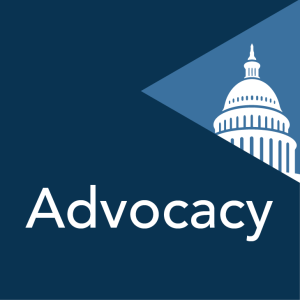

 Gov. Whitmer signed Michigan’s first mental health parity law May 21. The bipartisan legislation requires insurance coverage for mental health and substance use disorder treatments at the same level as physical health services. Senate Bill (SB) 27, sponsored by Sen. Sarah Anthony (D-Lansing), will eliminate existing disparities and ensure equal access to necessary care for all Michiganders.
Gov. Whitmer signed Michigan’s first mental health parity law May 21. The bipartisan legislation requires insurance coverage for mental health and substance use disorder treatments at the same level as physical health services. Senate Bill (SB) 27, sponsored by Sen. Sarah Anthony (D-Lansing), will eliminate existing disparities and ensure equal access to necessary care for all Michiganders.
The signing of SB 27 reflects ongoing efforts to address behavioral health access concerns in Michigan. Gov. Whitmer announced during her 2022 State of the State Address her intention that the legislature focus on policies to expand access to mental health services and expand the state’s mental health workforce. By strengthening mental health parity through recognition in state lawpaients will have increased access to services.
The House Health Policy Committee voted May 22 to advance legislation that aligns the Mental Health Code with the Public Health Code when defining scope for recognized clinical providers. House Bill (HB) 5114, sponsored by Rep. Carrie Rheingans (D-Ann Arbor), adds certified nurse practitioners, clinical nurse specialists-certified and physician assistants to the Mental Health Code, where they are not currently recognized. This lack of inclusion results in care gaps and confusion regarding the scope of those professionals, depending on the patient they may be serving or the location within a hospital they may be working. The state continues to struggle with healthcare workforce shortages, particularly in the behavioral health space. Alignment throughout Michigan’s compiled laws allows for certified nurse practitioners, clinical nurse specialists-certified and physician assistants to provide care to the fullest extent possible. Without this definitional change, those providers will continue to be precluded from fully participating in the behavioral healthcare continuum. The MHA supports this legislation and it now moves to the full House for consideration.
The House Insurance Committee voted on legislation that would cap insulin co-pays and co-insurance in the state to $35 for each 30-day supply. HB 4015, sponsored by Rep. Jennifer Conlin (D-Ann Arbor), prohibits an insurer in the state that provides coverage for insulin to charge a patient more than the $35 cap on selected insulin products. An insurer would be required to select at least one insulin product of each rapid-acting, short-acting, intermediate-acting, long-acting, ultra-long-acting, and premixed to include under the cap. As the cost of drugs continues to skyrocket, the MHA supports this legislation as well as other opportunities to positively impact patient access and affordability.
In addition, the House gave final approval to HBs 4131, 4213, 4579 and 4580, which provide payment parity for telehealth services and protections for telemedicine access. The bills support a provider’s ability to serve patients and protect in-person visits that are vital to health outcomes. The MHA supported bills are now headed to the governor’s desk to be signed into law.
Members with questions may contact Lauren LaPine or Elizabeth Kutter at the MHA.
